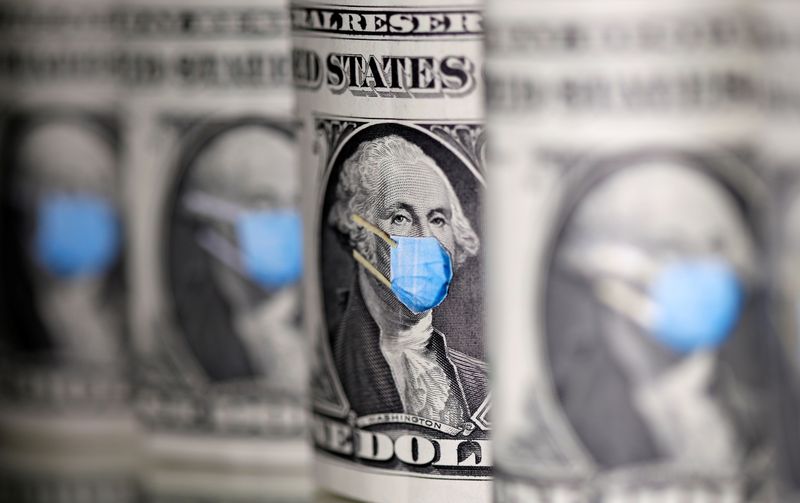By Stanley White
TOKYO (Reuters) - The U.S. dollar held onto gains against major currencies on Wednesday, supported by positive U.S. economic data and concerns about a second wave of coronavirus infections in Europe and Britain.
The New Zealand dollar is in focus before a meeting later on Wednesday where the country's central bank is expected to leave its official cash rate at record lows and update its assessment of the economic outlook.
The greenback is likely to continue to grind higher in the short term as the coronavirus rattles sentiment in Europe, but uncertainty about this year's U.S. presidential election means the dollar could be prone to more volatile swings.
"Some people are betting for more dollar strength against the euro, which looks overvalued," said Masafumi Yamamoto, chief currency strategist at Mizuho Securities in Tokyo.
"The picture in Europe has completely changed, because the economic recovery is stalling and there is a second wave of the virus, but I'm also worried about U.S. politics."
The dollar was quoted at $1.1708 per euro (EUR=D3) on Wednesday in Asia, close to a two-month low hit in the previous trading session.
The pound
The dollar was quoted at 0.9198 Swiss franc
The U.S. currency was little changed at 105.06 yen
On Tuesday the greenback was bolstered by data showing U.S. home sales surged to their highest level in nearly 14 years in August, but comments from a prominent Federal Reserve official sent mixed signals.
The U.S. economy risks a longer, slower recovery and "recessionary dynamics" if Congress fails to pass an additional fiscal stimulus package, Chicago Federal Reserve President Charles Evans said on Tuesday.
It is possible for the Fed to raise interest rates before inflation starts to average 2%, Evans also said.
The dollar index (=USD), which pits the dollar against a basket of six major currencies, rose 0.4% on Tuesday to 93.975.
Sentiment for the euro has slowly weakened as investors grow increasingly worried about surging coronavirus infections in countries like France and Spain, raising the risk of lockdowns.
Many euro zone countries have reintroduced travel restrictions, forcing airlines to scale back passenger services after a relatively quick run up over the summer.
Traders in the pound and the euro are also worried that Britain and the European Union will fail to agree a free trade deal, which would cause additional economic strain.
The New Zealand dollar
The Reserve Bank of New Zealand is expected to hold off on further stimulus but traders want to see how the central bank assesses the impact of the coronavirus.

The Australian dollar